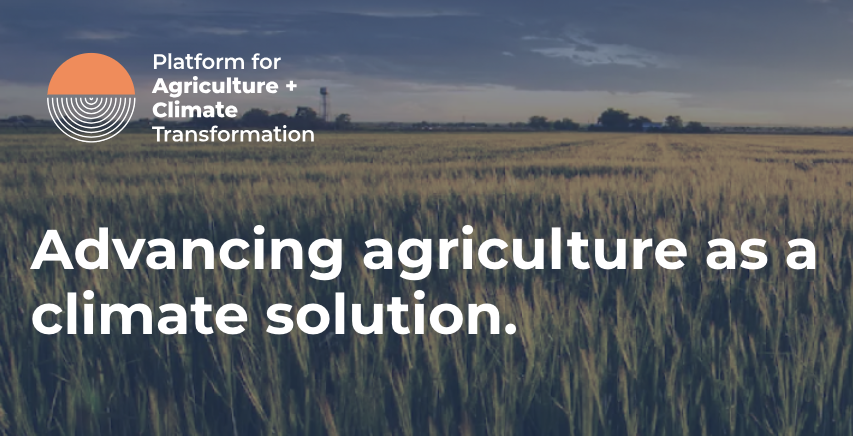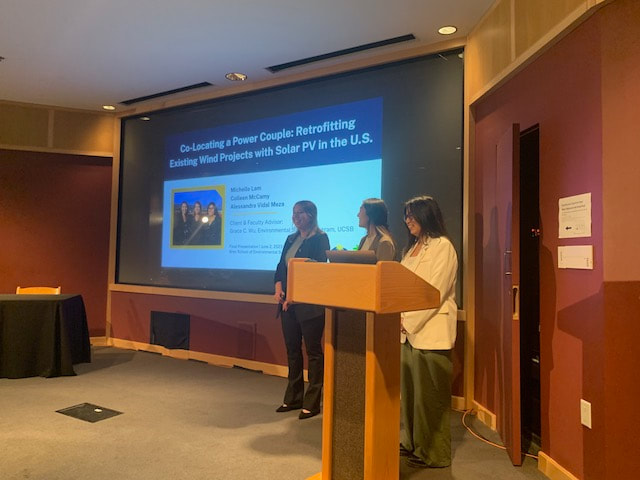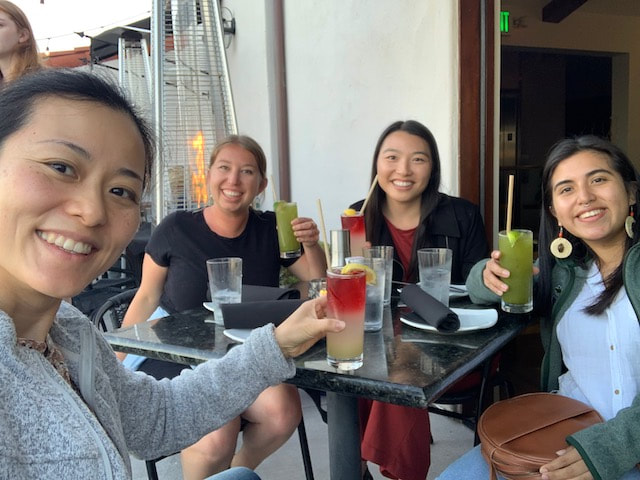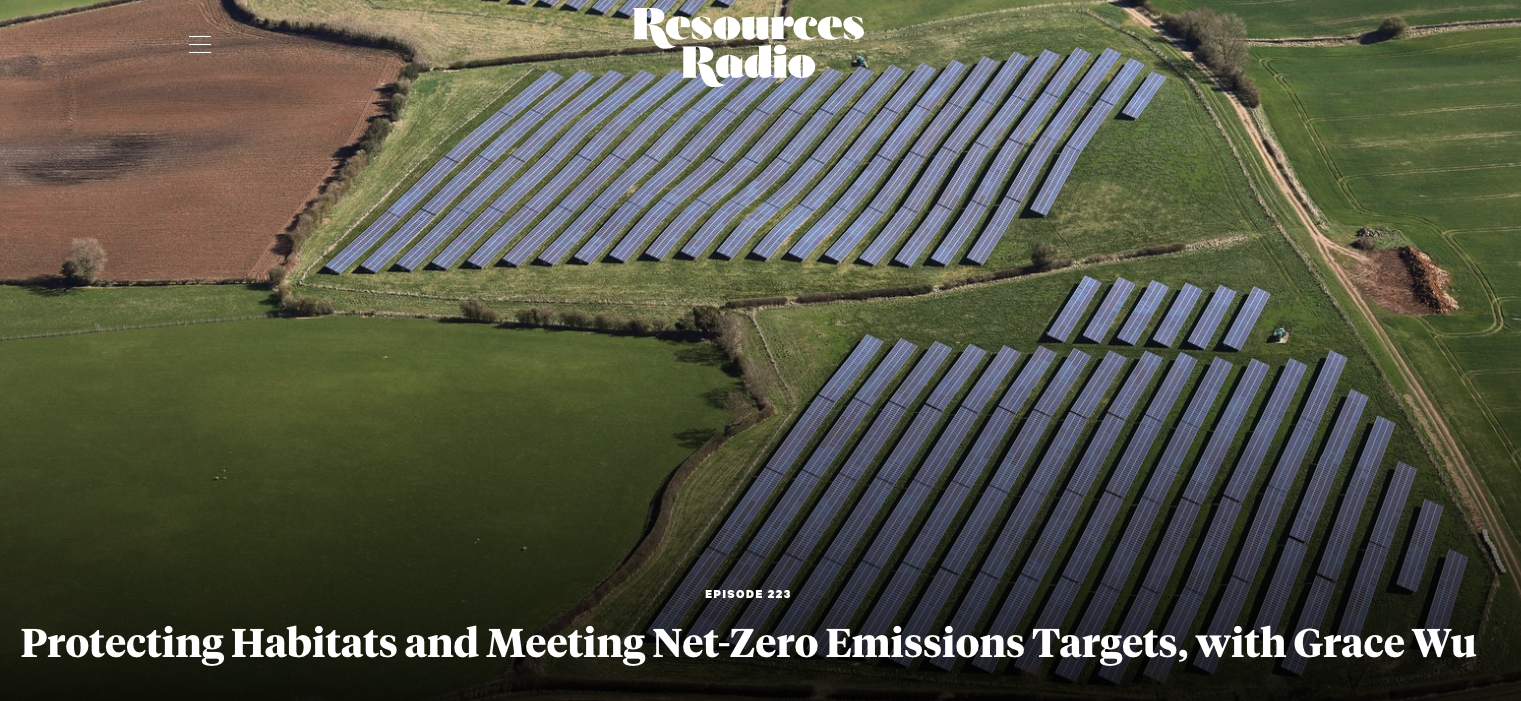|
The Spatial Climate Solutions Lab and the 2035 Initiative at UCSB, along with collaborators Justin Baker at North Carolina State University, Chris Wade at Research Triangle Institute (RTI), and Aline Mosnier at the Sustainable Development Solutions Network (SDSN) were awarded a grant to model US GHG emissions resulting from funding climate smart agricultural practices through the U.S. Farm Bill.
We will be taking a multi-modeling approach that leverages EPA and USDA produced marginal abatement cost curves for particular climate change mitigation agricultural practices and using the US FABLE Calculator to estimate national GHG emissions, land use change, crop production, and biodiversity impacts of various suites of climate smart agriculture funding programs. The UCSB team will consist of 2035 Initiative staff and two Spatial Climate Solutions Lab researchers.
0 Comments
UCSB PIs Grace Wu, Ranjit Deshmukh, Matto Mildenberger, and Michael Ludkovski are part of a multi-UC team including UC San Diego and UC Berkeley that was awarded a $2.8 million UC Climate Action grant.
Deeply reducing energy use emissions while ensuring reliable infrastructure is critical to meet California’s carbon neutrality goals by 2045 (California Air Resources Board 2022 Scoping Plan). Extreme weather events, such as wildfires and heavy precipitation, have increased the complexity of meeting this goal while maintaining reliable electricity services, as evidenced by Public Safety Power Shutoffs (PSPS). Recent literature on grid operations during climate emergencies have revealed significant inequities in the populations most affected by load shedding and restoration prioritization decision-making. In parallel, adoption of end-use electrification and distributed energy resources (DERs, such as PV) in California households are key strategies for a resilient carbon neutral grid. Adoption of these technologies has been inequitable across disadvantaged communities (DACs), intersecting with inequitable electricity reliability in divergent ways. Achieving resiliency in California’s electricity grid, especially in disadvantaged communities, will not only require a technical redesign of our grid’s infrastructure and operation but also a more nuanced understanding of the barriers to climate action and local resilience in the diverse array of communities across our state. The UCSB team (Spatial Climate Solutions Lab, CETLab, and the 2035 Initiative) will be leading Thrust 1: Projecting household electrification and adoption of DERs at the census tract level and under future policy scenarios. In Thrust 2, we will work with community partners in select DACs across California to design microgrid configurations that best meet their needs. MEDS team completes public presentation and graduate! Congrats, Michelle, Colleen and Alessandra!6/19/2023 MEDS (Masters of Environmental Data Science) students Michelle Lam, Colleen McCamy, and Alessandra Vidal Meza was advised by Professor Wu for their capstone project, "Co-locating a power couple: retrofitting existing wind projects with solar PV in the US". They delivered a mind-blowing public presentation that you can view here. I am so incredibly proud of and impressed with the work they accomplished in less than six months!
We celebrated their successes and exciting new career paths over sushi and mocktails against a perfect Santa Barbara sunset backdrop. What a way to celebrate earth day!
Prof Wu participated as a panelist in the opening plenary session, Clean Energy and the Land — The high-stakes battle over Climate Solutions. Moderator: Sammy Roth, Energy Reporter, Los Angeles Times (Boiling Point newsletter) Speakers:
Watch the recording of the entire plenary session here on the SEJ site here. Read Sammy Roth's take-home points and summary from the panel in his Boiling Point newsletter "How can we speed up solar and wind energy? Here are some ideas." "In this week’s episode, host Margaret Walls talks with Grace Wu, an assistant professor at the University of California, Santa Barbara, about the intersection of land use change and the adoption and implementation of clean energy technologies. Wu discusses the impacts of land use change on species and ecosystems, the land use requirements of different clean energy technologies, and strategies that can help us meet net-zero energy targets while minimizing negative impacts on habitats and ecosystems."
Listen and/or read the transcription here: Episode 223: "Protecting Habitats and Meeting Net-Zero Emissions Targets, with Grace Wu” |
Archives
November 2023
Categories |







